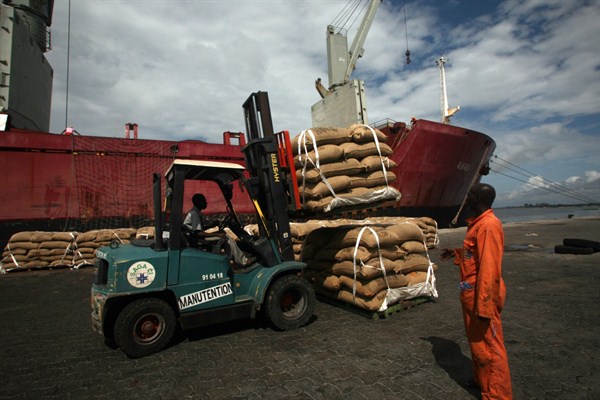In 2015, Cote d’Ivoire’s president, Alassane Ouattara, coasted to re-election, scoring a landslide win over a divided opposition.
In 2016, he basked in Cote d’Ivoire’s designation by the International Monetary Fund as Africa’s fastest-growing economy. That year also saw the adoption of a new constitution that Ouattara hoped would help the country definitively turn the page on a prolonged era of crisis and conflict.
This year, by contrast, is proving to be much more difficult. Already, 2017 has brought a series of mutinies by the security forces as well as a large-scale strike in the public sector. All the while, as it struggles to keep a lid on unrest, the world’s top cocoa producer has been hammered by a steep decline in cocoa prices—a development that could torpedo its post-conflict economic recovery while leaving the government with few options to defuse lingering tensions.

